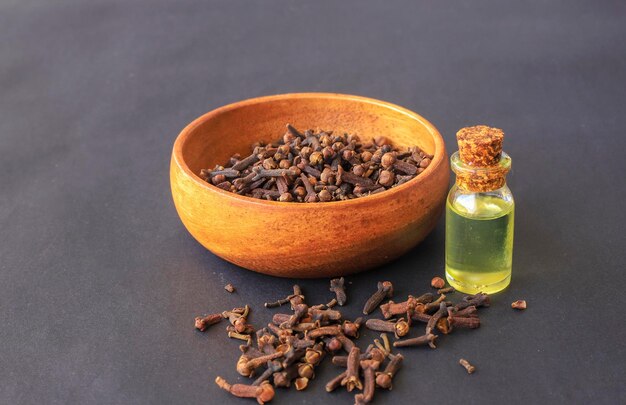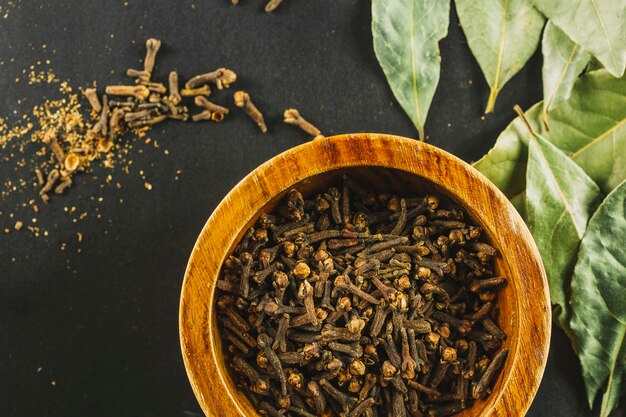Ayurvedic Medicine for Tooth Pain – Natural Remedies for Dental Health

Introduction to Ayurvedic Medicine for Tooth Pain
Tooth pain is a common and often debilitating condition caused by tooth decay, gum inflammation, or infection. Ayurveda offers a range of natural remedies that focus on addressing the root causes of tooth pain, such as inflammation, infection, and imbalance in the doshas. These remedies are designed to relieve discomfort, reduce swelling, and support overall oral health by promoting proper balance and healing through herbal ingredients and therapies.
Ayurvedic Understanding of Tooth Pain
In Ayurveda, dental pain is generally linked to an imbalance in the Vata, Pitta, and Kapha doshas. An aggravated Pitta dosha is commonly associated with inflammation and heat in the mouth, leading to issues like gum infections and toothaches. Vata imbalance can cause dryness and nerve sensitivity, contributing to discomfort. Ayurvedic treatments aim to restore balance among the doshas, promote oral hygiene, and relieve the underlying causes of tooth pain.
Key Ayurvedic Herbs for Tooth Pain
1. Clove (Syzygium aromaticum)
Clove is one of the most widely used herbs in Ayurvedic medicine for tooth pain. It contains eugenol, a compound known for its powerful analgesic and anti-inflammatory properties. Clove oil can be applied directly to the affected area to numb pain and reduce swelling.
2. Neem (Azadirachta indica)
Neem is known for its antibacterial, antiviral, and anti-inflammatory properties. In Ayurveda, Neem is often used to treat gum infections, reduce swelling, and promote healthy teeth. Neem twigs are traditionally used as natural toothbrushes in Ayurvedic practices.
3. Turmeric (Curcuma longa)
Turmeric, with its active compound curcumin, is renowned for its anti-inflammatory and antimicrobial properties. When used in dental care, turmeric helps in reducing infection, swelling, and pain. It also promotes the healing of gum tissues.
4. Triphala
Triphala, a combination of three fruits—Amalaki, Haritaki, and Bibhitaki—is a potent Ayurvedic remedy that supports overall oral health. It helps to reduce gum inflammation, fight infections, and detoxify the mouth. Triphala is often used as a mouthwash or in powder form for oral care.
5. Salt (Sodium chloride)
Salt has natural antiseptic properties that help fight bacterial infections and reduce swelling. Gargling with salt water can provide immediate relief from tooth pain and prevent infection in the gums and teeth.
Therapeutic Benefits of Ayurvedic Medicine for Tooth Pain
1. Pain Relief & Numbing Effect
Clove oil, as one of the most effective remedies, provides instant pain relief by numbing the affected area. It also has antibacterial properties, which help fight infection that might be causing the toothache.
2. Anti-Inflammatory & Healing
Turmeric and Triphala are both excellent for reducing inflammation in the gums and around the tooth. Their natural antimicrobial and healing properties help promote faster recovery and prevent the spread of infection.
3. Oral Hygiene & Infection Prevention
Herbs like Neem and Triphala promote good oral hygiene by reducing harmful bacteria in the mouth. Neem helps prevent plaque buildup, while Triphala acts as a natural cleanser, helping to keep the gums and teeth healthy and free from infection.
4. Strengthening Teeth & Gums
Regular use of Ayurvedic remedies helps to strengthen the teeth and gums, preventing further decay and gum issues. The herbal ingredients in these treatments support the restoration of tooth structure and integrity, keeping oral health intact.
5. Balancing the Doshas
Ayurvedic remedies for tooth pain work by balancing the doshas responsible for the condition. By restoring equilibrium between Vata, Pitta, and Kapha, Ayurvedic treatments address the root cause of dental issues, preventing future occurrences of tooth pain.
How Ayurvedic Medicine Works for Tooth Pain
Ayurvedic treatments for tooth pain work by targeting the inflammation and infection causing discomfort. The anti-inflammatory properties of herbs like turmeric and clove help to reduce pain and swelling, while antimicrobial herbs like neem and triphala fight the underlying infection. Together, these herbs restore balance in the oral cavity and support the body's natural healing processes, promoting overall oral health.
Choosing the Right Ayurvedic Remedies & Guidance
When selecting Ayurvedic remedies for tooth pain, it’s important to:
- Consult an Ayurvedic Practitioner: Personalized advice ensures the correct remedy based on your body type and specific condition.
- Ensure High-Quality Products: Choose organic, pure products to maximize the effectiveness and safety of the remedies.
- Purchase from Reputable Sources: Only buy Ayurvedic medicines from certified pharmacies or licensed practitioners to ensure quality and authenticity.
Recommended Dosage & How to Use Ayurvedic Remedies for Tooth Pain
The usage of Ayurvedic remedies for tooth pain depends on the type of remedy being used:
- Clove Oil: Apply 1-2 drops directly to the affected area using a cotton ball.
- Neem Mouthwash: Gargle with a mixture of neem powder and water twice daily to reduce bacterial growth.
- Turmeric Paste: Mix turmeric powder with water to form a paste and apply it to the gums for 10-15 minutes.
- Triphala Mouthwash: Mix Triphala powder with warm water and use it as a mouthwash once or twice daily.
- Salt Water Gargle: Dissolve 1 teaspoon of salt in warm water and gargle 2-3 times a day.
Potential Side Effects & Precautions
While Ayurvedic remedies for tooth pain are generally safe, there are a few precautions to keep in mind:
- Allergic Reactions: Some individuals may be allergic to certain herbs, such as clove oil. Perform a patch test before use.
- Pregnancy & Nursing: Pregnant or breastfeeding women should consult an Ayurvedic practitioner before using any of these remedies.
- Overuse: Overuse of clove oil or turmeric may cause irritation. Always follow the recommended dosage and application instructions.
Frequently Asked Questions (FAQ)
What is the best Ayurvedic remedy for tooth pain?
Clove oil is considered the most effective Ayurvedic remedy for immediate tooth pain relief due to its numbing and anti-inflammatory properties.
Can turmeric help with tooth pain?
Yes, turmeric's anti-inflammatory and antimicrobial properties make it an effective remedy for reducing tooth pain and promoting gum healing.
How can Neem help in tooth pain relief?
Neem has antibacterial properties that help fight infections in the gums and teeth, preventing pain caused by bacterial buildup.
How should I use Triphala for tooth pain?
Triphala can be used as a mouthwash by mixing Triphala powder with warm water. Gargling this mixture helps reduce gum inflammation and infection.
Is it safe to use Ayurvedic remedies for tooth pain during pregnancy?
Pregnant women should consult a healthcare professional or Ayurvedic practitioner before using any herbal remedies to ensure safety.
How long does it take to feel relief from tooth pain using Ayurvedic remedies?
Relief times vary, but many individuals experience noticeable pain reduction within a few hours to a few days, depending on the severity of the tooth pain.
Can salt water help with tooth pain?
Yes, salt water is a natural antiseptic that can help reduce inflammation and prevent infections, providing temporary relief from tooth pain.
Conclusion & Expert Insights
Ayurvedic medicine provides a natural and holistic approach to tooth pain management. By using herbs like clove, turmeric, neem, and Triphala, individuals can relieve pain, reduce inflammation, and promote oral health without relying on harsh chemicals. Always consult an Ayurvedic practitioner for personalized treatment plans to ensure safe and effective use of these remedies.
References & Further Reading
- Sharma, P.V. (1995). Ayurvedic Healing: A Comprehensive Guide.
- Lad, V. (2002). Ayurveda: The Science of Self-Healing.
- National Institute of Ayurveda:
- Journal of Ayurveda and Integrative Medicine for research on Ayurvedic dental care.
Got any more questions?
Ask Ayurvedic doctor a question and get a consultation online on the problem of your concern in a free or paid mode.
More than 2,000 experienced doctors work and wait for your questions on our site and help users to solve their health problems every day.



